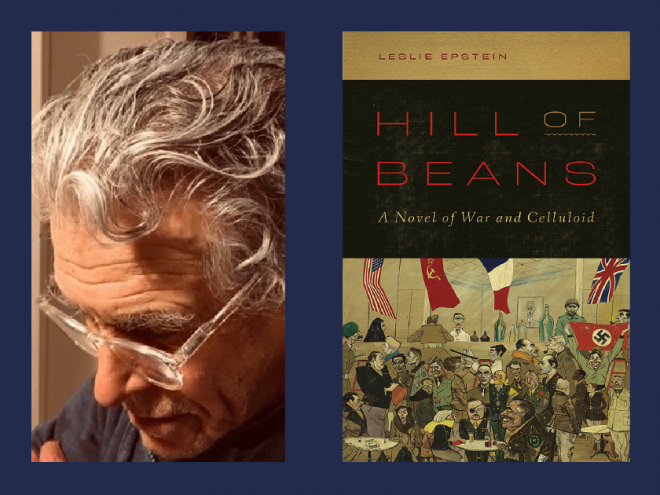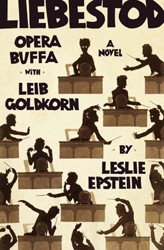Is history a series of venal transactions engineered by amoral individuals for their own selfish ends? This question lies at the heart of Leslie Epstein’s engaging fantasia, Hill of Beans, which owes heavy debts to two Quentin Tarantino films that play in similar counterfactual fields: Inglourious Basterds and Once Upon a Time in Hollywood. Epstein asks the reader to believe that the North Africa campaign of World War II was conceived as a publicity stunt by Jack Warner, of Warner Bros., to promote his studio’s upcoming production, Casablanca, which he regarded as a likely box office dud. In order to focus the world’s attention on that corner of the globe, and therefore boost ticket sales, Warner first uses ill-gotten leverage with his friend, President Franklin Roosevelt, to convince him that the second front demanded by Stalin in the wake of Pearl Harbor should be opened in North Africa, with Casablanca as one of the key landing spots for the invasion. As the release date for the film approaches, he then persuades FDR that the upcoming Big Three conference between Roosevelt, Churchill, and Stalin should also be held in Casablanca.
Epstein comes by his interest in Warner and his film honestly. His father Philip Epstein and uncle Julius were the twins who wrote the screenplay for Casablanca. His novel, however, is not as lighthearted as a cursory synopsis might lead one to believe. Epstein lends a gravity to his narrative by incorporating the tale of a fictional daughter of an actual Warner employee (a Jew working in their Berlin office), who died at the hands of the Nazis. This young woman, scarred by her father’s death and by a disastrous erotic encounter with Hitler, escapes to America, where she becomes Warner’s protegée and mistress. For some reason, she bears her animus not toward the Third Reich but toward her adopted country. Along the way, aid and comfort are rendered by the doyenne of Hollywood gossip columnists, Hedda Hopper, who even after Pearl Harbor believes that the US would be better allied with Hitler than with Stalin, and by General George S. Patton, who also figures prominently in the story.
Epstein chooses to tell his tale from multiple points of view, often shifting narrators three or four times in the span of a single page to narrate even relatively trivial events from multiple perspectives. In addition to Warner and his problematic protegée, the principal narrators include a Turkish-American ex-prizefighter retained by Warner as valet-cum-bodyguard, Goebbels, and Stalin. Hopper’s column expresses her voice, though Epstein walks a fine line there, incorporating some genuine archival material to larger sections that he invented to serve the purposes of his plot.
Throughout, Epstein’s sympathies clearly lie with Warner, and ultimately one’s response to Hill of Beans will depend on one’s response to this antihero, who is presented (not unfairly, by most accounts) as irredeemably crude, motivated primarily by lust for power, sex, and money. Do Warner’s fundamentally patriotic values outweigh his baser instincts, or would Epstein have served us better by focusing more on Jack’s eldest brother, Harry, who had more of Jack’s virtues and fewer of his vices? Though Casablanca might have us believe otherwise, the problems of such “little” people do amount to a hill of beans in this crazy, mixed-up world.




